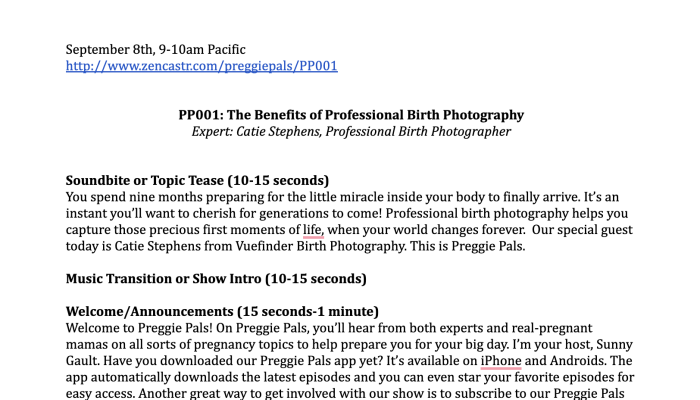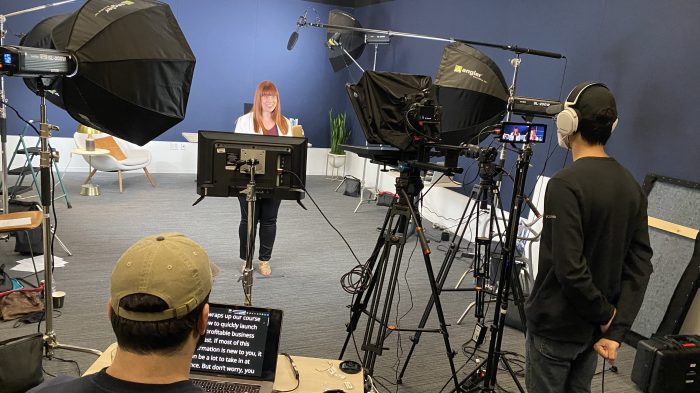
When listeners see you as a trusted voice in your niche, they’re more likely to tune in, stick around, and share your show with others. That kind of trust takes time, but the good news? Podcasting is one of the best platforms for building it.
Whether you’re just starting out or looking to level up, establishing authority isn’t about being the loudest or most polished. It’s about providing real value, making meaningful connections, and showing up consistently with insight your audience can count on.
Step #1: Understand Your Niche Inside and Out
If you want to build real authority as a podcaster, it starts with knowing your niche better than anyone else.
Your niche is more than just a broad category like “business” or “wellness.” It’s the specific area where your podcast can stand out and serve a clearly defined audience. The more focused you are, the easier it is to create meaningful content — and the faster you’ll become known as the go-to voice in that space.
Here are a few ways you can familiarize yourself with your niche:
- Listen to other podcasts in your space and take note of what they’re doing well — and where there might be gaps.
- Spend time in online communities where your audience hangs out: forums, social media groups, comment sections, even niche subreddits.
- Stay on top of trends and pain points. What challenges are people talking about? What’s new in your industry? Tools like Google Trends, newsletters, or even Twitter/X can help you stay plugged in.
Step #2: Interview Expert Guests and Thought Leaders
One of the most effective ways to grow your credibility as a podcaster is by interviewing experts and thought leaders who are already respected in your niche.
When you bring expert guests and thought leaders onto your show, you’re not just adding valuable content — you’re creating connection and credibility. These interviews give your audience access to insights they trust, and by being the person who facilitates those conversations, your authority starts to grow as well.
But, it’s not just about bringing an expert on. You need to run an effective interview to showcase your expertise and build your authority. So, make sure to go into your interview well-prepared. Have a set of questions you want to ask but be ready to deviate from the plan based on the way the conversation flows. The most effective interviews are a guided conversation as opposed to a direct Q&A.
Over time, interviewing respected experts not only boosts your visibility — it helps shape the perception that you belong in those expert circles too.

Step #3: Showcase Your Expertise
While interviewing guests is a powerful way to build authority, don’t forget — you bring value too. Your listeners tune in because they trust your perspective, and showcasing your own expertise is how you deepen that trust over time.
You don’t need to be the world’s leading expert to share what you know. In fact, some of the most engaging podcasters are simply a few steps ahead of their audience with a unique style that they let shine.
Here’s how to highlight your knowledge without sounding like you’re just talking about yourself:
- Share Your Experiences: Tell stories from your own journey — wins, failures, lessons learned. Real-world examples resonate more than theory.
- Create Solo Episodes: These are great opportunities to go deep on a topic, answer common questions, or offer quick tips. They also remind your audience that you have something valuable to say.
- Break Things Down: Take complex ideas in your space and explain them in a clear, relatable way. That’s a sign of real expertise — and your audience will appreciate it.
- Add Commentary During Interviews: Don’t just ask questions — respond with your own insight, connect the guest’s points to previous episodes, or expand on ideas with your take.
You’re building a brand around your voice and your perspective. So don’t rely too heavily on your guests’ expertise and make sure to own your role as a guide, educator, or thought leader in your niche.
Step #4: Build Social Proof and Engagement
Authority isn’t just about what you say — it’s about what others say about you, too. That’s where social proof comes in.
Social proof is the idea that people are more likely to trust and follow you if they see that others already do. It shows up in reviews, shares, comments, testimonials, and even the caliber of your guests. And in podcasting, it’s a powerful way to grow your reputation and encourage new listeners to hit play.
Building social proof isn’t always the easiest since it relies on other people taking action. While you can’t build social proof on your own, there are a few ways you can encourage others to leave social proof for you by:
- Ask for Reviews: Don’t just say “Leave a review.” Be specific: ask listeners to rate the show on Apple Podcasts or Spotify and share what they’ve found most helpful. A quick reminder at the end of an episode can go a long way.
- Highlight Feedback: Share listener reviews, comments, or DMs in your episodes or on your social media. It shows appreciation and encourages others to engage, too.
- Encourage Interaction: Ask questions in your episodes and invite listeners to respond — whether it’s via email, Instagram DMs, or a comment thread. The more you engage, the more your audience feels connected to you.
- Create Community Touchpoints: Whether it’s a Facebook group, Discord server, newsletter, or live Q&A, give your audience a place to connect with you (and each other) beyond the podcast to build a community.
Conclusion
You don’t need to be the most famous name in your niche to earn trust. You just need to understand your audience, create content that truly serves them, and position yourself as both a curious learner and a confident guide.
Interviewing experts, sharing your own insights, engaging your listeners, and showing social proof — these aren’t just strategies. They’re habits that compound over time. So keep showing up. Keep refining your voice. Keep delivering episodes that matter.









